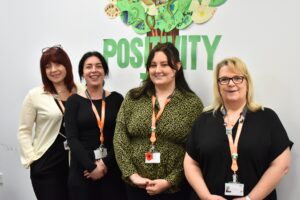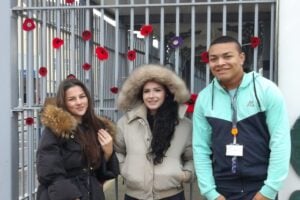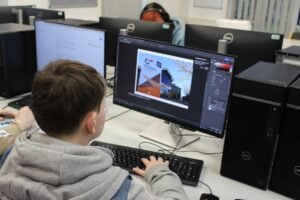When choosing to work with children, you are choosing to help shape the future generations. Nurturing and caring for their needs so they can thrive and develop into happy, inquisitive young people.
As an Early Years student, you will complete a work placement in a nursery or school setting. This experience will help you develop practical skills such as behaviour management, de-escalation techniques, and creative play ideas. These skills will prepare you to work in an early years setting once you’ve completed your course.
We recently caught up with some of our Level 2 Early Years Practitioner students to find out why they chose to study Early Years, what they are looking forward to on their course and what they have learnt during their first year work placements.
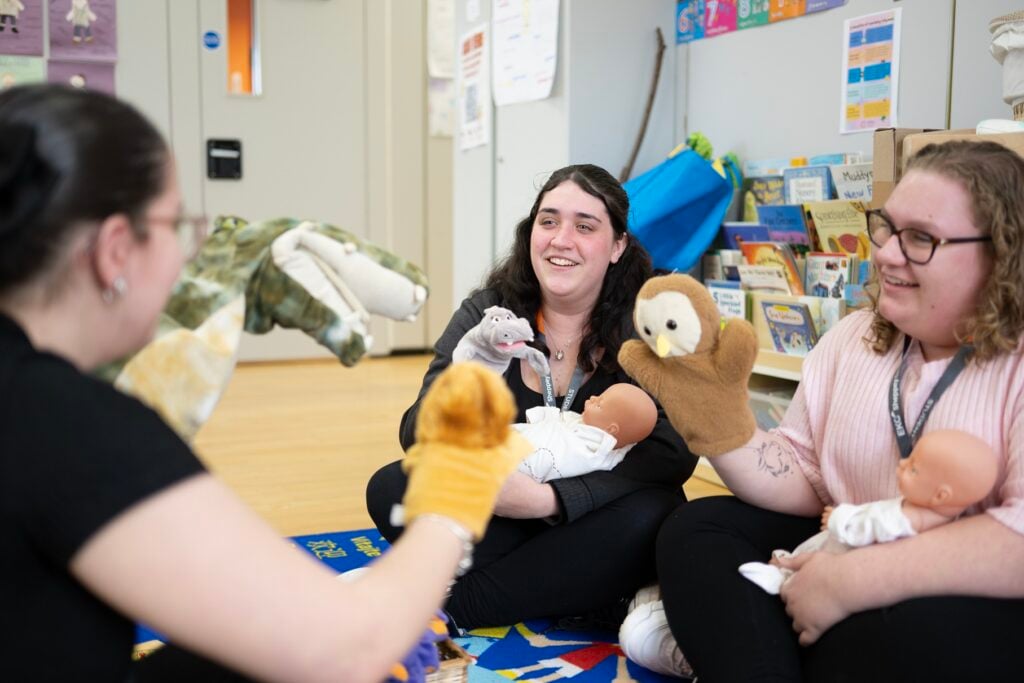
Amiee’s story
College has had a huge positive impact on Amiee’s life. Before she started College Amiee found education difficult and would not attend school.
Amiee told us: “I never got on well at school. I was getting kicked out a lot, had bad anxiety, and just didn’t go in. Coming here was my last option, and even my parents said I’d last a month. But then I got through the first year, we went to my first parents’ evening, and my mum was in tears because of how well I’d done. It was such a big moment.
“College just feels completely different. It’s about mutual respect, if you respect the staff, they respect you. Before college, I had no independence at all; I was scared to even get on a train by myself. Now I travel to and from College independently.”
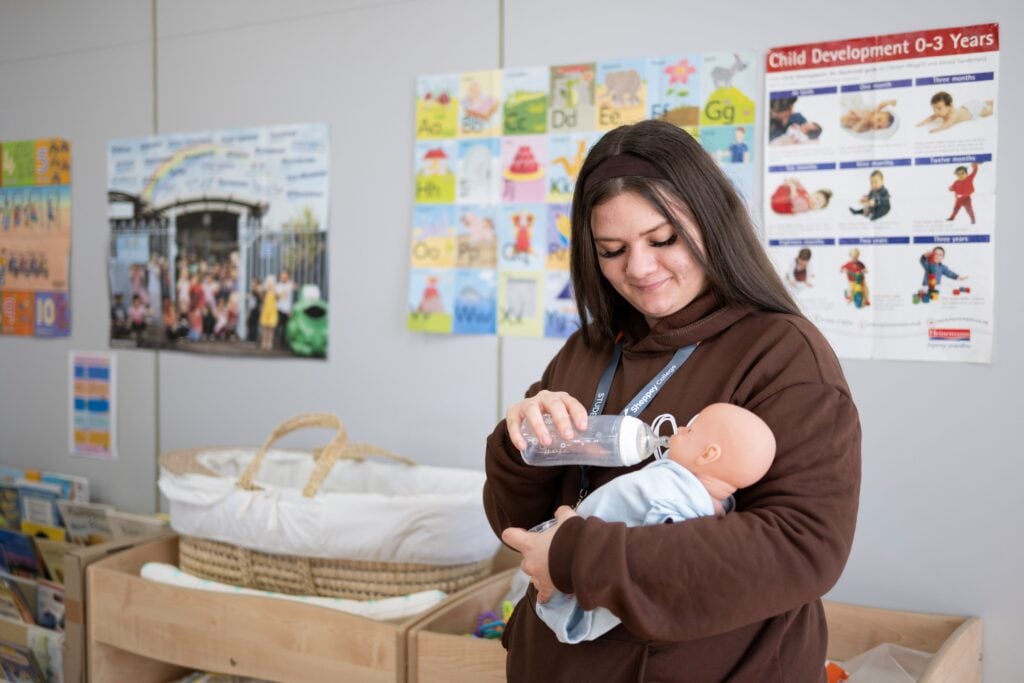
Amiee on College life
Why did you choose to study Early Years?
It’s really rewarding because you’re actually making a difference. I also really enjoy the arts and crafts side of things as it’s fun and creative. I like being able to use my imagination and relate to the children through activities.
How would you say College is different from school?
Oh, it’s completely different, it’s not even comparable. I’ve got friends still in sixth form, and when we talk about it, the differences are huge. For example, there’s no uniform. We just have a dress code, so you can wear what you like as long as it’s appropriate. It means you can be comfy, which actually makes a big difference to how you feel during the day.
The schedule’s different too. We’re in from about nine till five, but only three days a week, and if we’ve got breaks or free periods, we can do whatever we want. You’ve got a lot more independence here. School keeps you supervised and structured all the time, but college teaches you how to manage your own time. You really learn to be independent.
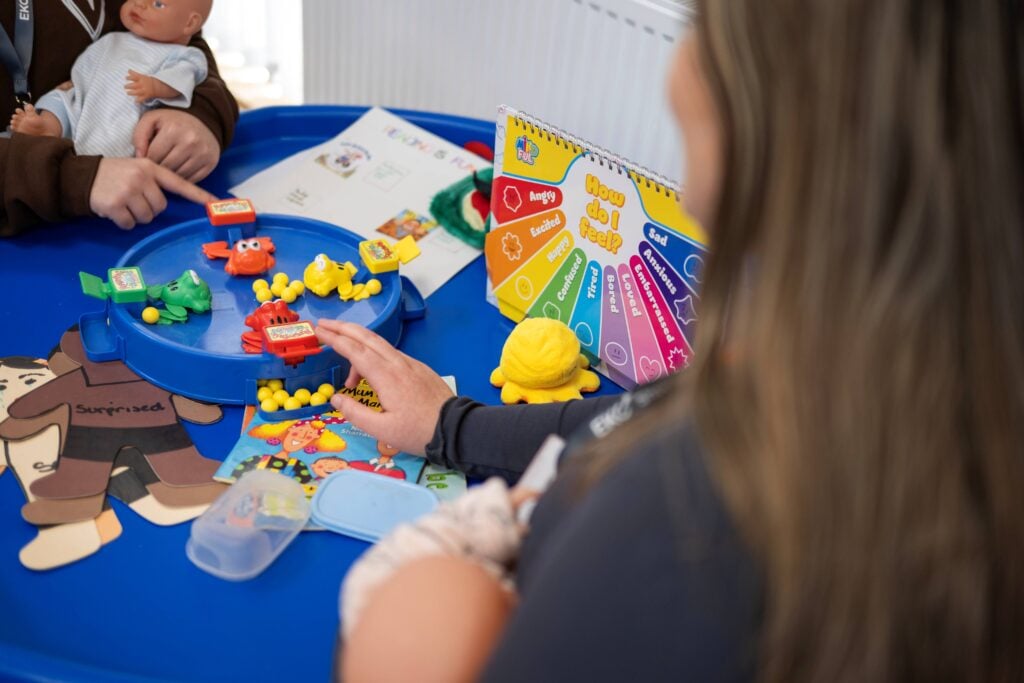
Amiee on her work placement
What’s been your favourite part of your course so far?
Has to be the work placement. It’s two days a week in a nursery, which can be quite intense, but you know what you’re stepping into and that’s what most of us on the course want to do in the future.
Have you been able to use what you’ve learned in college during your placement?
Oh, 100%. I work in a SEN primary school now, and I can really see how the things we’ve learned in class apply there. The course has given me so much confidence. I’ve gone from barely speaking to being able to organise groups of children and work as a team at College. We’ve learned practical things too, like nappy changing, paperwork, and safeguarding. Safeguarding especially comes up all the time in placement.
What kind of activities are you responsible for during you work placement?
We have to do observations, where a staff member watches us lead an activity. Last time, I did a parachute game with shapes. I’d call out a shape, and the children would find it under the parachute. It linked to maths learning and physical development.
Next time, I’ll be doing something similar with a SEND group, but I’ll need to adapt it since most of the children are nonverbal. It’s making me think more creatively about how to adapt my activities to suit the needs of the children.
Life after College
After College, Amiee aspires to attend university to study Primary Education with a focus on children with children with special educational needs and disabilities (SEND). She hopes to work as a Learning Support Assistant in a Primary School in the future.
Kacy’s story
Kacy chose to study Early Years as she has grown up with a big family, always being a great help with the younger children. She feels that looking after children comes naturally and is something she enjoys, so felt a career in childcare would be idea for her.
Kacy on her work placement
What’s been your favourite part of your course so far?
The work placement. I actually changed placements recently. I was at a Primary School in Reception, but I didn’t really enjoy it. I’m glad I did it because it helped me realise that working with that age group isn’t something I’d want to do in the future. The College was really flexible and moved me into a setting that suited me better.
What age are the children you’re working with now?
They’re really little — the youngest are around six months old, and the oldest has just turned one. It’s very different from working with primary school-aged children. I’m enjoying it.
Have you been able to use what you’ve learned in college during your placement?
We have learned about the Early Years Foundation Stage (EYFS) framework and child development, and those things come into play more than I realised. For example, we’ve learned how to adjust the way we talk to children depending on their age. You’d use a completely different voice with a baby than with a two-year-old or a five-year-old.
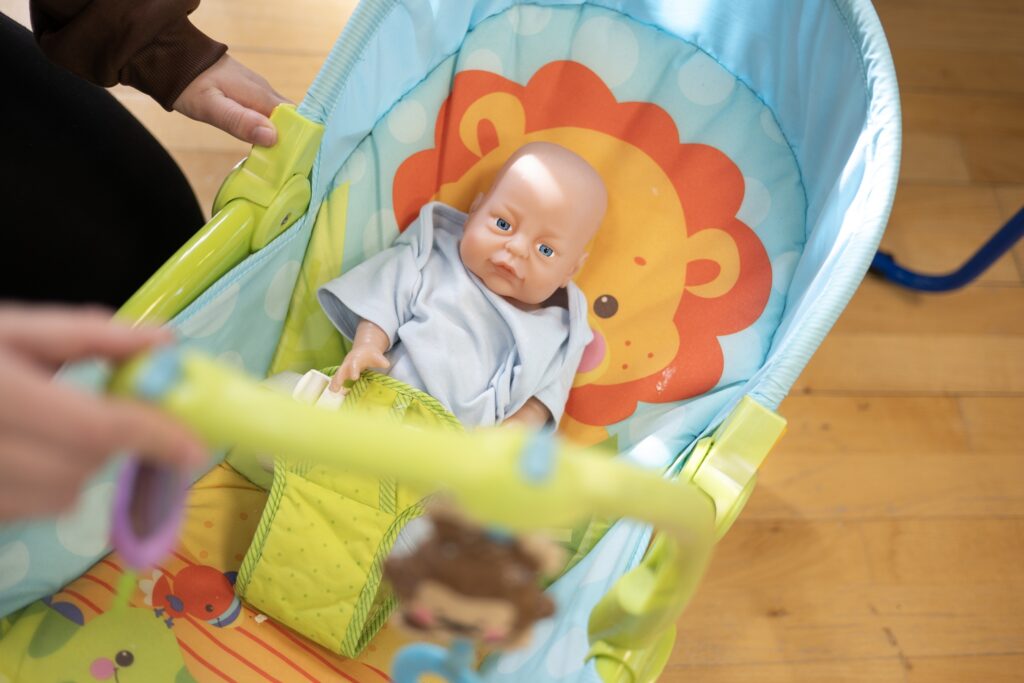
Kacy on College life
How does College compare to school for you?
It’s so much better. I never really liked school, but College is just so different. There’s a lot more freedom. I can make my own choices, and I feel more trusted. The lecturers treat you like an adult, which I really like. It’s just a more mature environment.
Tell me about your lecturers and how have they supported you?
I’ve had Jo and Katie, and they’re both really helpful. If we don’t understand something, they give us extra time and even do one-on-one sessions to help us get it.
When I was unhappy in my first placement, I told them, and they sorted it out straight away. They’re really supportive and always make sure problems get resolved so we can progress through the course.
Life after College
After College, Kacy hopes to gain an Apprenticeship at her current placement nursery so she can keep building her childcare skills and take the next step in her career.
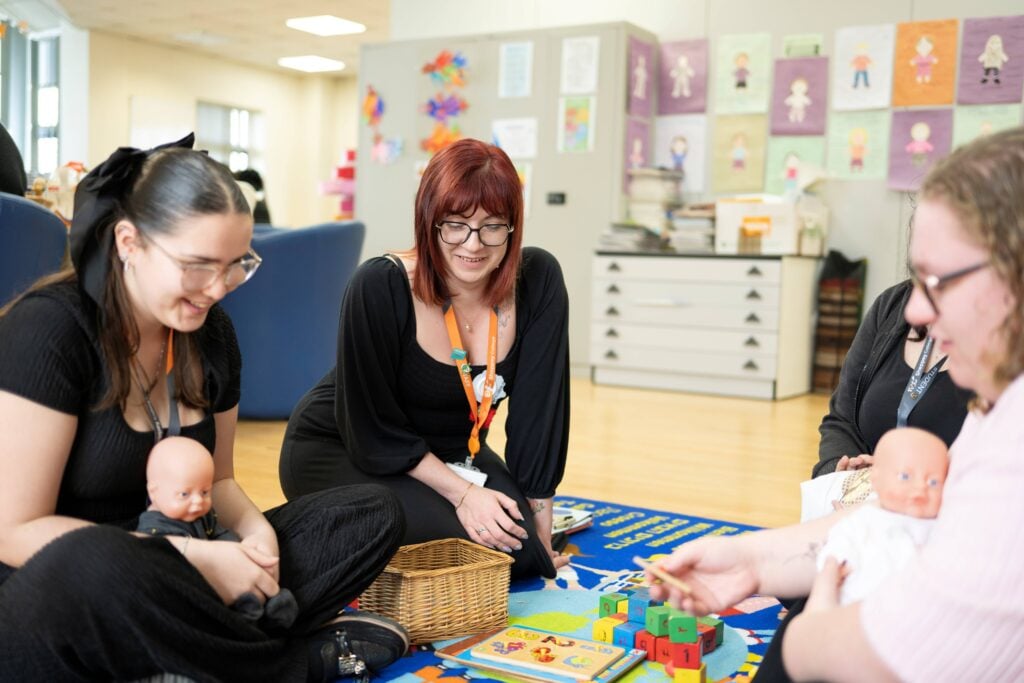
Want to learn more about working with children?
Explore our Education and Early Years courses and sign up to our November Open Day to explore our campus.
